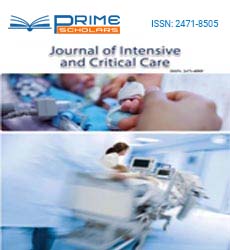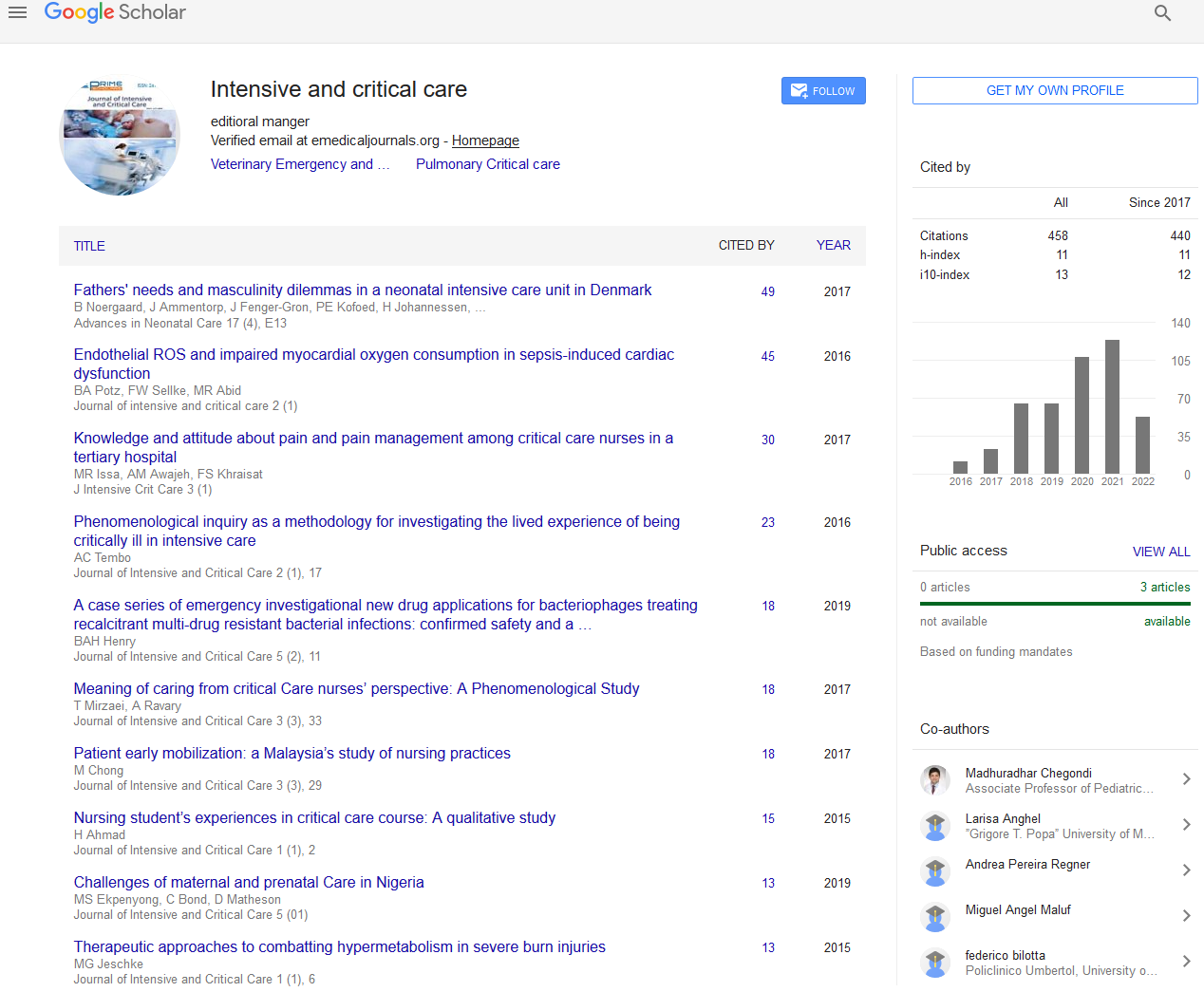Commentary - (2023) Volume 9, Issue 4
Innovations and Interventions: Navigating the Spectrum of Myocardial Infarction Treatments
Dre Xiao*
Department of Cardiovascular Surgery, Soochow University, China
*Correspondence:
Dre Xiao,
Department of Cardiovascular Surgery, Soochow University,
China,
Email:
Received: 01-Aug-2023, Manuscript No. IPJICC-23-17430;
Editor assigned: 03-Aug-2023, Pre QC No. IPJICC-23-17430 (PQ);
Reviewed: 17-Aug-2023, QC No. IPJICC-23-17430;
Revised: 22-Aug-2023, Manuscript No. IPJICC-23-17430 (R);
Published:
29-Aug-2023, DOI: 10.35248/2471-8505-9.4.33
Description
Myocardial infarction, commonly known as a heart attack, is
a life-threatening medical emergency that demands swift and
effective intervention. Over the years, medical science has
made remarkable strides in developing a range of treatments
to address various aspects of this condition. From the initial diagnosis
to the post-event recovery phase, an array of medical,
surgical, and interventional options are available to improve
outcomes and enhance the quality of life for those affected.
This article explores the diverse treatments for myocardial infarction,
emphasizing the importance of timely and appropriate
interventions. When a heart attack is suspected, prompt
emergency medical treatment is crucial to minimize heart
muscle damage and improve the chances of survival. Oxygen
Therapy: Administering supplemental oxygen helps increase
oxygen supply to the heart and vital organs, improving overall
oxygenation. Chewing or taking aspirin at the onset of symptoms
helps reduce the formation of blood clots, thereby maintaining
blood flow to the heart. This medication helps relax the
blood vessels and improve blood flow, thereby reducing chest
pain. Intravenous pain relievers are often administered to alleviate
the intense chest pain associated with a heart attack. In
certain cases where immediate access to a catheterization lab
is not possible, thrombolytic drugs may be used to dissolve the
blood clot causing the heart attack. Percutaneous coronary intervention,
commonly referred to as angioplasty, is a minimally
invasive procedure used to open blocked coronary arteries and
restore blood flow to the heart. A catheter with a deflated balloon
is inserted into the blocked artery. The balloon is inflated
to compress the plaque and widen the artery, improving blood
flow. In many cases, a stent-a tiny, mesh-like tube-is placed in
the artery to help keep it open. Drug-eluting stents release
medication to prevent re-blockage. PCI is highly effective in relieving
chest pain, improving blood flow, and reducing the risk
of future heart events. It is typically performed as an emergency
intervention during a heart attack. Coronary artery bypass
graft surgery is recommended for individuals with severe coronary
artery disease, multiple blocked arteries, or those who aren’t
suitable candidates for PCI. Blood vessels from other parts
of the body, such as the leg or chest, are harvested to create
bypasses around the blocked coronary arteries. The harvested
blood vessels are then attached to the aorta and the coronary
arteries, creating new pathways for blood flow. CABG surgery
aims to improve blood supply to the heart muscle, alleviate
symptoms, and enhance overall cardiac function. It is particularly
useful for cases involving complex blockages or multiple
vessel involvement. Medications play a crucial role in treating
myocardial infarction and preventing future cardiac events.
Drugs like aspirin and clopidogrel prevent blood clot formation
by inhibiting platelet aggregation. These medications help
reduce heart rate and blood pressure, thereby decreasing the
heart’s oxygen demand. ACE inhibitors widen blood vessels,
improve blood flow, and lower blood pressure. They are often
prescribed to manage heart failure and reduce the risk of future
heart attacks. These drugs lower cholesterol levels, reducing
the risk of further plaque buildup and atherosclerosis progression.
Nitroglycerin is used to relieve chest pain by dilating
blood vessels and improving blood flow to the heart.
Acknowledgement
None.
Conflict Of Interest
The authors declare no conflict of interest.
Citation: Xiao D (2023) Innovations and Interventions: Navigating the Spectrum of Myocardial Infarction Treatments. J Intensive Crit Care. 9:33.
Copyright: © 2023 Xiao D. This is an open-access article distributed under the terms of the Creative Commons Attribution License, which permits unrestricted use, distribution, and reproduction in any medium, provided the original author and source are credited.

